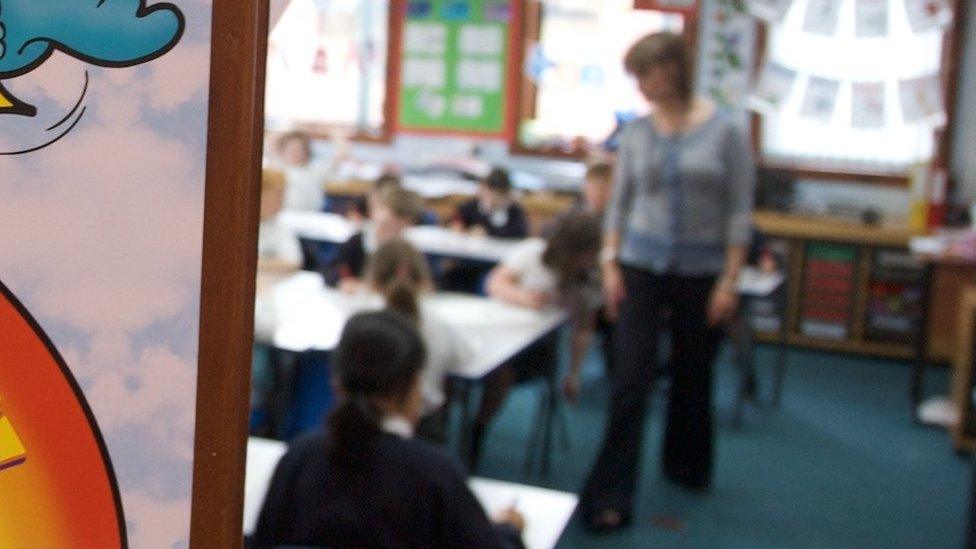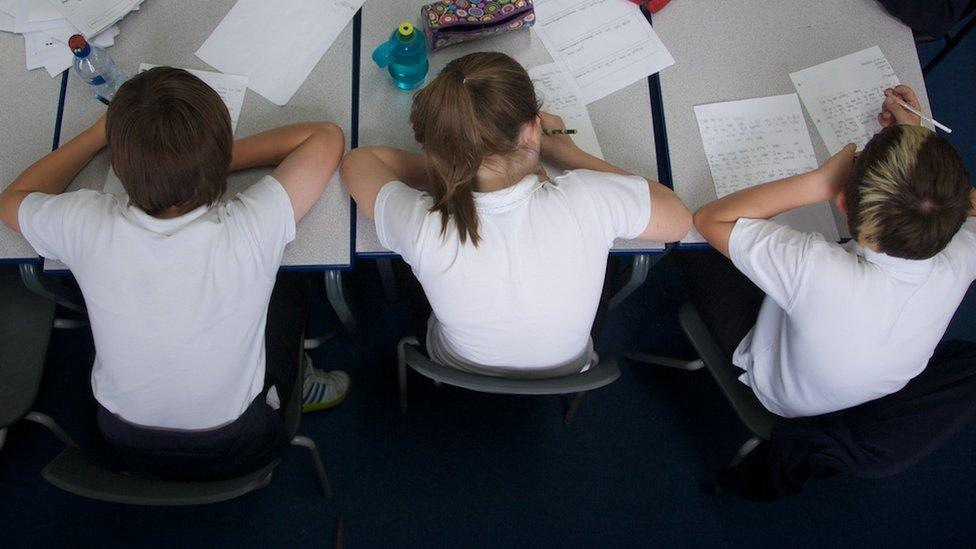Changes due to school inspections in Scotland
- Published

Changes to the way schools are inspected are to be tried out in the coming months.
The aim is to try to give a better indication of how well the system is working for learners.
Instead of simply inspecting an individual school, more emphasis will be placed on the broader experience of students.
Another change could see schools get less notice of planned inspections.
Try outs of changes are due to begin next month - this could lead to permanent changes.
'Less stressful'
One idea is to introduce, shorter, more focused inspections: schools would only get two days or two weeks notice of an inspection. These could start to be trialled towards the end of October.
An argument in favour of short notice inspections is that they can actually prove less stressful for staff because they have less time to worry about them.
Another is that parents and learners may sometimes feel more confident that an inspection gives an accurate impression of a school's underlying strengths and weaknesses because staff have had less time to prepare.
A separate change would be to introduce inspections focussing on aspects of education in one area rather than simply look at how well an individual school is performing.

For instance, the inspection may look at the whole experience of pupils in S4, S5 and S6 so might also look at the opportunities students get to tap into the expertise at a local college or the links between schools and businesses.
Short-notice
Explaining the changes, the public agency responsible for inspections, Education Scotland, said: "Rather than inspecting the establishment itself, the inspection will instead focus on the learner's journey and their experience of the different elements of their education. So we are exploring the question 'what is it like to be a learner in this community?' rather than 'how good is the secondary or primary school?'."
Education Scotland has been exploring possible changes to the inspection system for a year. It has been speaking to learners, councils, teachers and parents to try to shape its approach.
One aim is to try to make sure the inspection system takes account of the changes to education in recent years such as the introduction of Curriculum for Excellence and the shake up to the last three years of secondary school which has seen a growing emphasis on the opportunities for vocation education.
The executive director of the Scottish Parent Teacher Council Eileen Prior said the proposed changes sounded "quite attractive".
She said: "It's good to have some alternative approaches to inspection. Short or no-notice inspections have been discussed for some time and seem quite attractive, as the stressful preparation time will be removed and inspectors will see the school as it operates normally.
"There are of course difficulties with it too - for instance absent staff or school trips - but parents want inspectors to get a taste of their school as it really is, and to get clear and meaningful feedback on strengths and areas for development."
The largest teachers' union the EIS said there were potential pros and cons.
It said: "The EIS welcomes the fact that Education Scotland is aware of the additional pressure that inspections can place on schools and teachers and is taking steps to try to improve its processes.
"Hopefully, the pilots that are to be run will help to iron out any issues with the new style inspections and also ensure that any more positive aspects of the current system are not lost.
"The move to short-notice inspections may help to ease the stress that can build up in the run-up to an inspection visit, but it may also create other practical issues such as short-notice inspections being announced during a period of unexpected staff shortage.
"There may also be a potential risk of headteachers putting staff on year round alert due to the short notice nature of inspections. As ever, the key to positive inspections will continue to be professional dialogue with all staff."
Parents and learners will still be able to read inspectors' reports on the Education Scotland website.